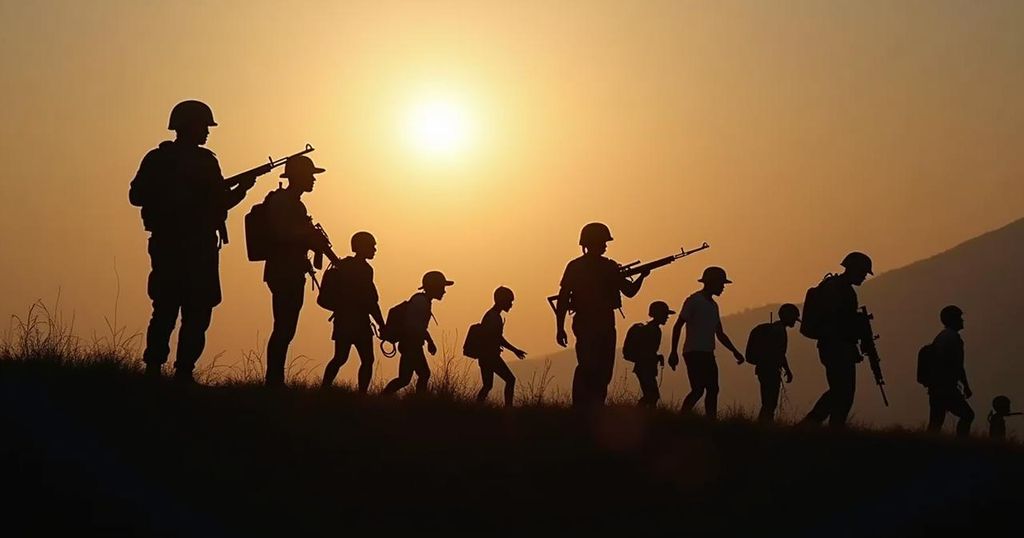Shooting of Migrants by Mexican Troops: A Deplorable Incident Near the Guatemalan Border
Mexican army troops opened fire on a truck carrying migrants near the Guatemalan border, resulting in six fatalities and ten injuries. The incident has drawn condemnation from President Claudia Sheinbaum and human rights advocates, highlighting the ongoing implications of militarized immigration enforcement in Mexico.
On Tuesday, a tragic incident unfolded near the Guatemalan border, where Mexican army troops opened fire on a truck transporting migrants from various nations, resulting in the deaths of six individuals from Egypt, Peru, and El Salvador. This incident occurred amid President Claudia Sheinbaum’s first day in office, prompting her to label the event as “deplorable.” In addition to the fatalities, ten other migrants sustained injuries, with the Peruvian Foreign Ministry confirming the loss of one of its citizens and demanding an urgent investigation into the circumstances surrounding the shooting. The sequence of events began when soldiers reported hearing gunfire as a convoy of three trucks approached their position. According to the Mexican Defense Department’s account, the first truck in the convoy allegedly sped away, leading to two soldiers opening fire on a subsequent vehicle. Upon inspection, four migrants were discovered deceased, and two died later from their injuries. The military did not confirm whether the migrants were armed or whether they had retaliated against the troops. The response to this incident has been significant. President Sheinbaum stated that the two soldiers involved have been referred to civilian prosecutors, although as of now, they have not been charged. She emphasized the need for thorough investigations to ensure accountability for those responsible. The Mexican Council of Bishops has condemned the shooting, labeling it “a disproportionate use of lethal force,” and citing it as an indication of the dangers inherent in the militarization of immigration policy at the southern border. Activists criticize the broader implications of this militarization, pointing out that such incidents are not isolated but rather symptomatic of ongoing systemic issues within the immigration enforcement framework. The Mexican military, previously empowered with extensive law enforcement responsibilities under the prior administration, faces mounting scrutiny in light of this incident, which mirrors past events involving migrant shootings by government forces. This incident represents not only a grave humanitarian concern but also poses political repercussions for the new administration, which has advocated for enhanced military involvement in law enforcement. Given the history of violence against migrants in Mexico and the problematic relationship between state forces and migrant communities, this latest shooting reiterates the urgent need for reform in Mexico’s immigration and enforcement policies.
Migrants traversing Mexico often face extreme peril, including violence from organized crime and inadequate protection from authorities. Over the years, there have been notable incidents where Mexican forces have engaged with migrants, resulting in casualties amid claims of perceived threats. The climate of fear has intensified with the militarization of immigration enforcement strategies aimed at curbing illegal crossings and smuggling operations. The latest shooting has raised alarms over the potential for human rights abuses and the accountability of military personnel in border regions disproportionately affected by crime and corruption.
In summary, the shooting of six migrants by Mexican troops is a distressing development highlighting the intersection of migration, law enforcement, and human rights in Mexico. President Claudia Sheinbaum’s administration faces considerable challenges in addressing this incident, which underscores broader systemic issues related to militarization of immigration policies and the safety of vulnerable populations. The call for urgent investigations and accountability reflects an urgent need for reform and the protection of human rights in a precarious context for migrants in the region.
Original Source: abcnews.go.com




Post Comment